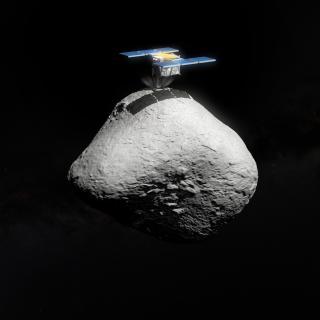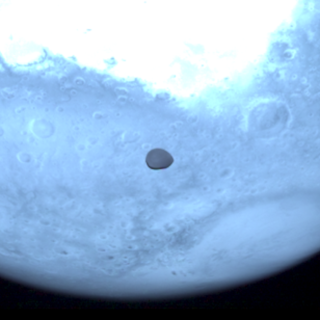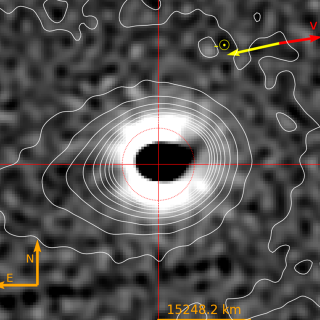It may interest you
-
 Astronomers have used telescopes around the world, includingthe Gran Telescopio Canarias (GTC or Grantecan) at the Roque de los Muchachos Observatory on La Palma, to study the asteroid 1998 KY26, revealing it to be almost three times smaller and spinning much faster than previously thought. The asteroid is the 2031 target for Japan’s Hayabusa2 extended mission. The new observations offer key information for the mission’s operations at the asteroid. “We found that the reality of the object is completely different from what it was previously described as,” says astronomer Toni Santana-Ros, aAdvertised on
Astronomers have used telescopes around the world, includingthe Gran Telescopio Canarias (GTC or Grantecan) at the Roque de los Muchachos Observatory on La Palma, to study the asteroid 1998 KY26, revealing it to be almost three times smaller and spinning much faster than previously thought. The asteroid is the 2031 target for Japan’s Hayabusa2 extended mission. The new observations offer key information for the mission’s operations at the asteroid. “We found that the reality of the object is completely different from what it was previously described as,” says astronomer Toni Santana-Ros, aAdvertised on -
 ESA’s Hera mission for planetary defense performed a flyby of Mars, as part of its gravitational assistance manoeuvre to shorten its journey to the binary asteroid system Didymos. During the flyby, the spacecraft came around 5000 km from the surface of Mars, having also the opportunity to obtain images of its two moons, Deimos (during the approach) and Phobos (when departing Mars). Julia de León, Javier Licandro, and George Prodan, researchers at the Instituto de Astrofísica de Canarias, participate in this mission, successfully launched from Cape Cañaveral, Florida (USA) on October 7, 2024Advertised on
ESA’s Hera mission for planetary defense performed a flyby of Mars, as part of its gravitational assistance manoeuvre to shorten its journey to the binary asteroid system Didymos. During the flyby, the spacecraft came around 5000 km from the surface of Mars, having also the opportunity to obtain images of its two moons, Deimos (during the approach) and Phobos (when departing Mars). Julia de León, Javier Licandro, and George Prodan, researchers at the Instituto de Astrofísica de Canarias, participate in this mission, successfully launched from Cape Cañaveral, Florida (USA) on October 7, 2024Advertised on -
 The discovery, made in collaboration between the IAC Solar System Group and Light Bridges, reveals the rotation period of comet 3I/ATLAS The Two-metre Twin Telescope (TTT) has made a pioneering discovery in astronomy: the first detection of a jet of gas and dust and its periodic modulation in an interstellar comet, 3I/ATLAS. The study, published in the journal Astronomy & Astrophysics, provides the first evidence of localised activity from an interstellar nucleus, offering unique insight into the nature of a celestial body that formed outside our Solar System. An extraordinarily normalAdvertised on
The discovery, made in collaboration between the IAC Solar System Group and Light Bridges, reveals the rotation period of comet 3I/ATLAS The Two-metre Twin Telescope (TTT) has made a pioneering discovery in astronomy: the first detection of a jet of gas and dust and its periodic modulation in an interstellar comet, 3I/ATLAS. The study, published in the journal Astronomy & Astrophysics, provides the first evidence of localised activity from an interstellar nucleus, offering unique insight into the nature of a celestial body that formed outside our Solar System. An extraordinarily normalAdvertised on
